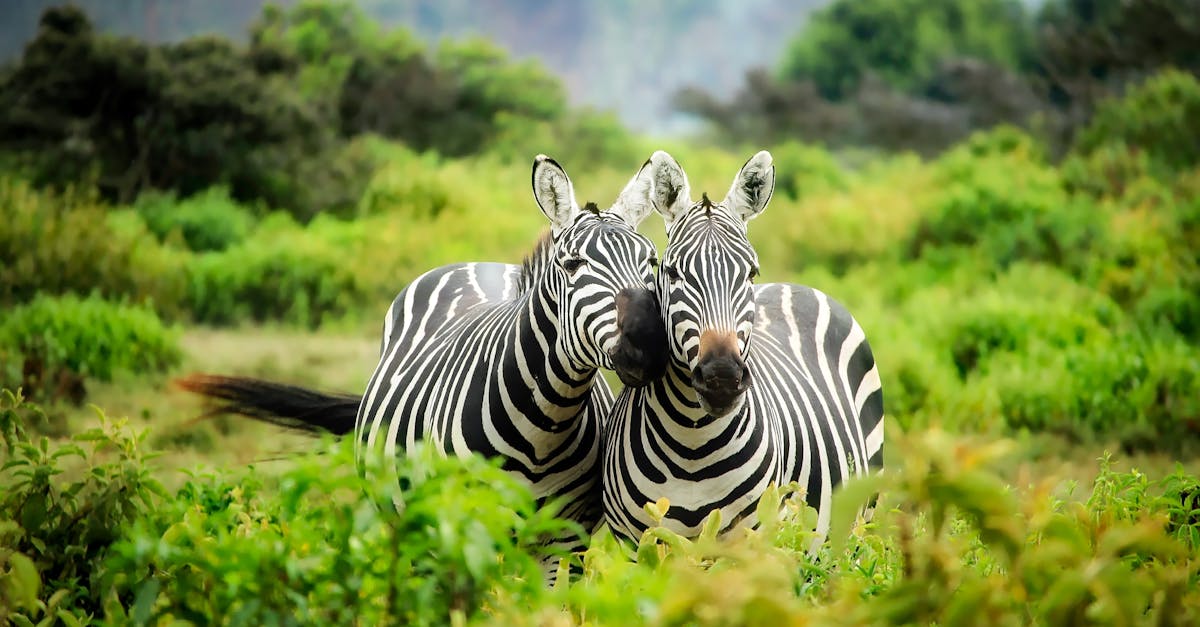A Wild Idea: Bringing Safari Animals into Our Homes
Imagine if your living room was home to more than just your typical cat or dog. Now, you might have experienced this in a dream or seen it in an adventurous movie, but the truth is, a new trend is emerging: people are increasingly interested in welcoming safari animals as part of their families. It’s interesting how our fascination with the wild is evolving into a desire to bring a piece of it into our daily lives.
The Allure of the Exotic
There’s something to be said for the allure of the exotic. Safari animals, with their majestic presence and unique characteristics, bring a sense of adventure and novelty that traditional pets might not offer. You may already know that animals like lions, cheetahs, and zebras have always captured our imagination. But what’s surprising is that some people are now looking to these creatures not just as subjects of fascination but as potential companions.
Why the Sudden Interest?
- Connection to Nature: In an increasingly urbanized world, there’s a growing desire to reconnect with nature. Safari animals symbolize the untamed beauty of the wild, offering a tangible link to the natural world.
- Status Symbol: Owning an exotic animal can be seen as a status symbol, showcasing wealth and a certain adventurous spirit.
- Unique Bond: The bond formed with an exotic pet is perceived as unique and special, different from the typical pet-owner relationship.
The Reality of Exotic Pet Ownership
I’ve often wondered about the practicalities of owning a safari animal. The reality is, it’s not as simple as bringing home a puppy from the local shelter. There are significant challenges and responsibilities that come with this choice.
Legal and Ethical Considerations
- Regulations: Many countries have strict regulations regarding the ownership of exotic animals. These laws are in place to protect both the animals and the public. Before considering such a pet, it’s essential to research local laws and obtain the necessary permits.
- Ethical Concerns: The ethical implications of keeping a wild animal in a domestic setting are profound. These animals have complex needs that are difficult to meet in a home environment. Speaking from experience, the well-being of the animal should always be the top priority.
Care and Maintenance
- Space Requirements: Safari animals need a lot of space to roam and exercise. A typical home or backyard is not sufficient.
- Diet and Health: Their dietary needs are specialized and can be expensive. Regular veterinary care from a specialist is also necessary.
- Behavioral Challenges: These animals have instincts and behaviors that are hard to manage. Training and socialization require professional expertise.
The Benefits of Exotic Companionship
Now that I think about it, despite the challenges, there are undeniable benefits to having an exotic pet. The bond you can form with such a unique creature is extraordinary.
Emotional and Psychological Benefits
- Therapeutic Effects: Interacting with animals has been shown to have therapeutic effects, reducing stress and anxiety. The presence of an exotic animal can amplify these benefits due to the unique connection they offer.
- Educational Opportunities: Owning a safari animal provides a unique educational experience. It offers insights into wildlife conservation, animal behavior, and the importance of preserving natural habitats.
Unique Experiences
- Social Interaction: Exotic pets can be a great conversation starter and help in socializing with like-minded individuals who share a passion for wildlife.
- Personal Fulfillment: There’s a sense of personal fulfillment and adventure that comes with caring for an exotic animal. It’s a journey that requires dedication and love, often leading to a deeply rewarding experience.
Considerations Before Taking the Plunge
I was just thinking about the many factors one must consider before deciding to bring a safari animal into their home. Here’s a thought: it’s a decision that should not be taken lightly.
Assessing Your Readiness
- Lifestyle Compatibility: Does your lifestyle allow you to meet the demands of an exotic pet? These animals require significant time, attention, and resources.
- Financial Commitment: The costs associated with exotic pet ownership are substantial. This includes food, healthcare, and habitat maintenance.
- Long-Term Commitment: Exotic animals often have long lifespans. Are you prepared for a long-term commitment?
Seeking Professional Guidance
- Expert Consultation: Consulting with wildlife experts and veterinarians specializing in exotic animals is crucial. They can provide valuable insights and help you understand the responsibilities involved.
- Support Networks: Joining communities or support networks of exotic pet owners can be beneficial. They offer a platform to share experiences, seek advice, and find support.
A Glimpse into the Lives of Exotic Pet Owners
Here’s a story that might give you some perspective. The other day, I came across an interview with a family that owns a cheetah. They spoke about the joy and challenges of their unique pet. It dawned on me that their journey was filled with moments of awe and learning.
Real-Life Experiences
- Challenges Faced: They mentioned the initial difficulties in adapting their home to suit the cheetah’s needs. The process was demanding but ultimately rewarding.
- Bonding Moments: The family shared heartwarming stories of bonding with their cheetah, describing moments of playfulness and affection that were deeply fulfilling.
Lessons Learned
- Patience and Dedication: The family emphasized the importance of patience and dedication. They learned to respect the cheetah’s natural instincts and behaviors, fostering a harmonious relationship.
- Conservation Awareness: Their experience heightened their awareness of wildlife conservation. They became advocates for preserving natural habitats and protecting endangered species.
The Future of Exotic Pet Ownership
Looking back, it’s clear that the trend of embracing safari animals as furry family members is more than just a fad. It reflects a deeper yearning to connect with nature and experience the extraordinary.
Evolving Trends
- Increased Awareness: As awareness of wildlife conservation grows, more people are becoming interested in exotic pet ownership for the right reasons. They seek to contribute to conservation efforts and provide a safe haven for these animals.
- Technological Advancements: Advances in technology are making it easier to care for exotic pets. From specialized diets to habitat enrichment tools, technology is playing a crucial role in improving the lives of these animals.
Responsible Ownership
- Education and Advocacy: Responsible ownership involves continuous education and advocacy. Pet owners must stay informed about the latest best practices and contribute to raising awareness about the ethical considerations of exotic pet ownership.
- Collaboration with Experts: Collaboration with wildlife experts, veterinarians, and conservationists is essential. It ensures that the needs of the animals are met and that their well-being is prioritized.
Final Thoughts: Is It Right for You?
In my opinion, the decision to embrace a safari animal as a furry family member is deeply personal and requires careful consideration. Ever wonder why some people take this leap? The reasons are varied, but they often stem from a profound love for wildlife and a desire to experience something extraordinary.
Reflecting on Your Decision
- Self-Assessment: Reflect on your motivations and readiness. Are you prepared for the responsibilities and challenges that come with exotic pet ownership?
- Seeking Guidance: Don’t hesitate to seek guidance from experts and support networks. Their insights and experiences can help you make an informed decision.
Taking the Next Step
- Research and Preparation: Conduct thorough research and prepare yourself for the journey ahead. Understand the needs of the animal and ensure you can meet them.
- Commitment to Conservation: Consider how you can contribute to wildlife conservation. Your decision to own an exotic pet can be part of a broader effort to protect and preserve these magnificent creatures.
Now you know, embracing safari animals as furry family members is a complex yet rewarding journey. It’s no surprise that this trend is gaining traction, reflecting our enduring fascination with the wild and our desire to bring a piece of it into our homes. If I had to guess, the future will see more people exploring this unique bond, driven by a love for nature and a commitment to responsible ownership.












